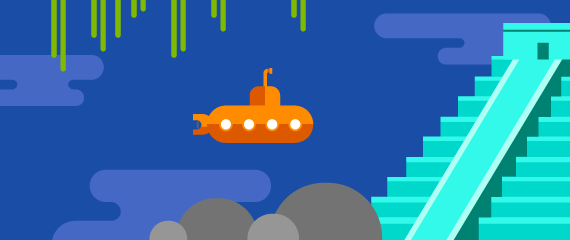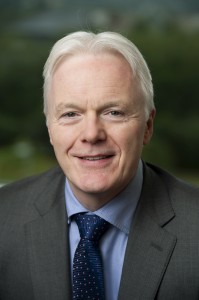11 March 2015 – It is amazing to think that when the BBC Micro launched in 1981, Microsoft didn’t exist in the UK and neither did Windows. But that first BBC project embodied everything we believed then, and that we still believe today about computing.
Get affordable computers to as many people as possible, give them the tools and the skills they need – and then let them create the things they want.
That campaign inspired a generation. A generation brought up on simple programmes that took a few lines of basic code and made the machine do something amazing. Something that changed their lives.
In a world of Halo and VR, a screen full of “Michel is awesome” might not seem like much, but those tentative first steps were followed by many more. Steps that led to my own passion for technology that has never left. And today, that passion allows me to work with some truly inspiring people. Far better coders and engineers than I ever could be. Almost daily they are changing our understanding of what ‘computing’ means. They are blending the physical and the digital through augmented reality platforms such as HoloLens, or helping the world talk to each other through Skype Translator. And, if they work on Windows, then a billion people will benefit from their work – their code – every single day.
It is this “maker” spark which we need to ignite and nurture. Seeing a child’s face light up when they make something incredible in Minecraft or code their first game in Kodu is something special. But despite this, and the efforts of many others in the industry including the likes of Google and Samsung as well as people at UK-based ARM and BT, there still aren’t enough new people taking those first seemingly small steps and making them last a lifetime. This is why Microsoft is backing the BBC’s campaign and why we are helping to design, build and give away a million programmable Microbit devices to every twelve year old in the country.
In the UK we have a long history of punching above our weight. The world’s sixth largest economy, four of the top six Universities in the world and number five in the number of patents in force. However, if we are to continue our outsized impact as a nation, we must understand that the fundamental engine of creativity, and productivity, in this century is computer science.

Our long term ambition is that 80% of all jobs that require computer science knowledge are able to be filled by a homegrown UK graduate. To do this, we need to inspire this generation of young people to choose computer science. It’s why we’ve launched Microsoft Imagine to bring together competitions such as the Kodu and Imagine Cups and the resources kids need to learn to code. It’s why we campaigned for the new curriculum to teach the building blocks of computing, not just ICT, and why we developed our QuickStart Computing materials to help teachers feel confident in the classroom.
Today we have a generational opportunity. If we help our young people to become creators, then we help them to determine their own futures in a digital world.
Because being a maker, matters.
We all want ‘digital making’ to become part of the mainstream and the BBC is uniquely placed to make that happen. In the 21st Century, coding can and should be something you learn to do like swimming or riding a bike and ‘Make it Digital’ is a perfect catalyst.
Michel Van der Bel.

Build your imagination
| Katie Stainer
11 March 2015 – It is amazing to think that when the BBC Micro launched in 1981, Microsoft didn’t exist in the UK and neither did Windows. But that first BBC project embodied everything we believed then, and that we still believe today about computing.
Get affordable computers to as many people as possible, give them the tools and the skills they need – and then let them create the things they want.
That campaign inspired a generation. A generation brought up on simple programmes that took a few lines of basic code and made the machine do something amazing. Something that changed their lives.
In a world of Halo and VR, a screen full of “Michel is awesome” might not seem like much, but those tentative first steps were followed by many more. Steps that led to my own passion for technology that has never left. And today, that passion allows me to work with some truly inspiring people. Far better coders and engineers than I ever could be. Almost daily they are changing our understanding of what ‘computing’ means. They are blending the physical and the digital through augmented reality platforms such as HoloLens, or helping the world talk to each other through Skype Translator. And, if they work on Windows, then a billion people will benefit from their work – their code – every single day.
It is this “maker” spark which we need to ignite and nurture. Seeing a child’s face light up when they make something incredible in Minecraft or code their first game in Kodu is something special. But despite this, and the efforts of many others in the industry including the likes of Google and Samsung as well as people at UK-based ARM and BT, there still aren’t enough new people taking those first seemingly small steps and making them last a lifetime. This is why Microsoft is backing the BBC’s campaign and why we are helping to design, build and give away a million programmable Microbit devices to every twelve year old in the country.
In the UK we have a long history of punching above our weight. The world’s sixth largest economy, four of the top six Universities in the world and number five in the number of patents in force. However, if we are to continue our outsized impact as a nation, we must understand that the fundamental engine of creativity, and productivity, in this century is computer science.
Our long term ambition is that 80% of all jobs that require computer science knowledge are able to be filled by a homegrown UK graduate. To do this, we need to inspire this generation of young people to choose computer science. It’s why we’ve launched Microsoft Imagine to bring together competitions such as the Kodu and Imagine Cups and the resources kids need to learn to code. It’s why we campaigned for the new curriculum to teach the building blocks of computing, not just ICT, and why we developed our QuickStart Computing materials to help teachers feel confident in the classroom.
Today we have a generational opportunity. If we help our young people to become creators, then we help them to determine their own futures in a digital world.
Because being a maker, matters.
We all want ‘digital making’ to become part of the mainstream and the BBC is uniquely placed to make that happen. In the 21st Century, coding can and should be something you learn to do like swimming or riding a bike and ‘Make it Digital’ is a perfect catalyst.
Michel Van der Bel.